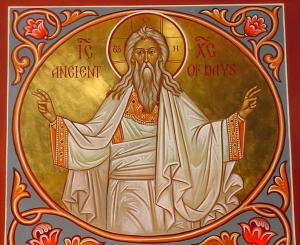Psalm 25 is said on Sundays at Matins in the Benedictine Office., but its most familiar verse comes from the use of verses 6-12 in the Ordinary of the Mass, at the lavabo.
St Alphonsus Liguori summarised it as follows:
Scriptural and liturgical uses of the psalm
St Alphonsus Liguori summarised it as follows:
This psalm teaches all those that are unjustly persecuted what virtues they should practise during their trial. Moreover, it makes and explains in detail what are the dispositions with which we should approach the altar, whether to communicate or to offer the holy Sacrifice.Psalm 25
Vulgate
|
Douay-Rheims
|
In finem. Psalmus David.
|
Unto the end, a psalm for David
|
Júdica
me, Dómine, quóniam ego in innocéntia mea ingréssus sum: * et in Dómino
sperans non infirmábor
|
Judge
me, O Lord, for I
have walked in my innocence: and I have put my trust in the Lord, and shall not be
weakened.
|
Proba me, Dómine, et tenta me: * ure renes meos et cor
meum.
|
Prove
me, O Lord, and try
me; burn my reins and my heart.
|
Quóniam misericórdia tua ante óculos meos est: * et
complácui in veritáte tua.
|
For
your mercy is before my eyes; and I am well pleased with your truth.
|
Non sedi cum concílio vanitátis: * et cum iníqua
geréntibus non introíbo.
|
I
have not sat with the council of vanity: neither will I go in with the doers
of unjust things.
|
Odívi
ecclésiam malignántium: * et cum ímpiis non sedébo.
|
I
have hated the
assembly of the malignant; and with the wicked I will not sit.
|
Lavábo inter innocéntes manus meas: * et circúmdabo
altáre tuum, Dómine.
|
I
will wash my hands
among the innocent; and will compass your altar, O Lord:
|
Ut
áudiam vocem laudis: * et enárrem univérsa mirabília tua.
|
That
I may hear the voice of your praise: and tell of all your wondrous works.
|
Dómine,
diléxi decórem domus tuæ: * et locum habitatiónis glóriæ tuæ.
|
I
have loved, O Lord, the beauty of
your house; and the place where your glory dwells.
|
Ne
perdas cum ímpiis, Deus, ánimam meam, * et cum viris sánguinum vitam meam.
|
Take
not away my soul, O God, with the wicked:
nor my life with bloody men:
|
In
quorum mánibus iniquitátes sunt: * déxtera eórum repléta est munéribus.
|
In
whose hands are iniquities:
their right hand is filled with gifts.
|
Ego
autem in innocéntia mea ingréssus sum: * rédime me, et miserére mei.
|
But
as for me, I have walked in my innocence: redeem me, and have
mercy on me.
|
Pes
meus stetit in dirécto: * in ecclésiis benedícam te, Dómine
|
My
foot has stood in the direct way: in the churches I will bless you, O Lord.
|
Scriptural and liturgical uses of the psalm
NT
references
|
Mt 27:34 (6)
|
RB
cursus
|
Sunday Matins
|
Monastic/(Roman)
feasts etc
|
Sunday Matins (Post
Tridentine: Wednesday Prime)
|
Roman
post 1911
|
1911-62:
Wednesday Prime . 1970:
|
Mass
propers (EF)
|
Ordinary of the Mass (6-12);
Lent 2 Monday, IN (1, 11-12);
Passion Wednesday, CO (6-7)
|
